23, June 2021
Nine Catalan separatists freed after Spain pardon 0
Nine Catalan separatists who were serving long prison sentences for their role in a failed 2017 independence bid were released from jail on Wednesday a day after being pardoned by Spain.
Rain was falling as the seven male prisoners walked out of Lledoners jail some 70 kilometres (45 miles) northwest of Barcelona, where they were met by umbrella-carrying supporters shouting “Independence, independence!”
As they walked through the gates, they were embraced by newly-appointed Catalan leader Pere Aragones, and posed for a photograph alongside a Catalan independence flag and a banner reading “Freedom for Catalonia”, an AFP correspondent said.
At the same time, the two remaining prisoners, both women, were released from two other facilities.
The clemency decision was approved by the Spanish government on Tuesday, with Prime Minister Pedro Sanchez saying he hoped it would draw a line under past confrontations with Catalonia’s separatist-led regional leaders and open the way for talks.
The pardons were published earlier on Wednesday in the government’s official gazette.
The separatists were serving between nine and 13 years in jail for their role in holding a banned referendum in October 2017 that was marred by police violence then followed by a short-lived declaration of independence, sparking Spain’s worst political crisis in decades.
Although the jail sentences have been dropped, all nine are banned from holding public office and the pardons are conditional on them not committing “a serious crime” over the next three to six years.
They have all served more than three years behind bars.
“I am here because the sacrifice they have made for Catalonia and for all of us has been huge,” said Ignasi Sole, a 65-year-old retired mechanic who was waiting outside Lledoners prison for their release.
“It’s a way of thanking them.”
– ‘Independence through dialogue’ –
The pardons have been roundly denounced by Spain’s right-wing opposition as well as by many in the pro-independence camp who want a full amnesty that would allow those who fled abroad to return home.
Analysts have also warned it is a risky political gamble that may help calm tensions but won’t solve the years-long turmoil over the separatist crisis, which has left Catalonia sharply divided.
Madrid is hoping the move will give impetus to the upcoming talks with the Catalan government of Aragones who is more open to dialogue than his hardline predecessor.
Aragones and Oriol Junqueras, the prisoner serving the longest sentence of 13 years, who also heads the moderate ERC party, have recently taken steps towards Sanchez by distancing themselves from the path of unilateralism.
“We will devote all our efforts in this new stage to ensuring that negotiation be the basis for resolving the conflict,” Aragones said Tuesday.
“The best way to achieve (independence) is through dialogue, negotiation and agreement.”
When the separatists were sentenced in October 2019 by Spain’s Supreme Court, the ruling triggered an outcry across Catalonia, with thousands hitting the streets in protests that sometimes turned violent.
The move to pardon the separatists was approved by more than two-thirds of Catalans, an Ipsos poll found.
But the same poll found that 53 percent of Spaniards were against the move, which has also been opposed by Spain’s Supreme Court and the right-wing opposition.
In the coming weeks, Sanchez will meet for the first time with Aragones, who has pledged to push for an amnesty and a new referendum on self-determination — this time with Madrid’s approval.
Both are out of the question for the Spanish government.
Source: AFP
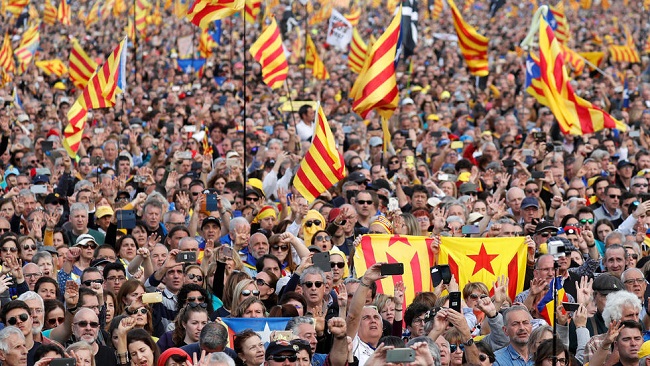
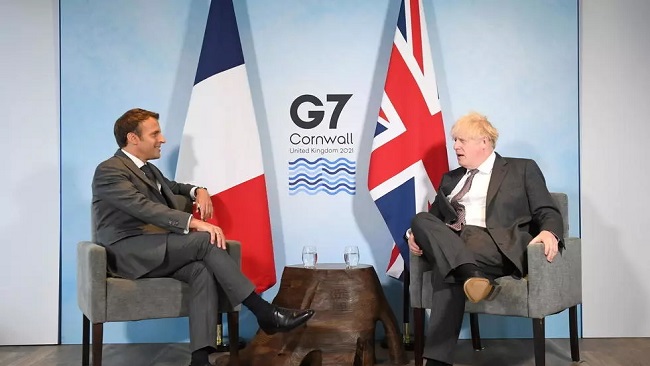
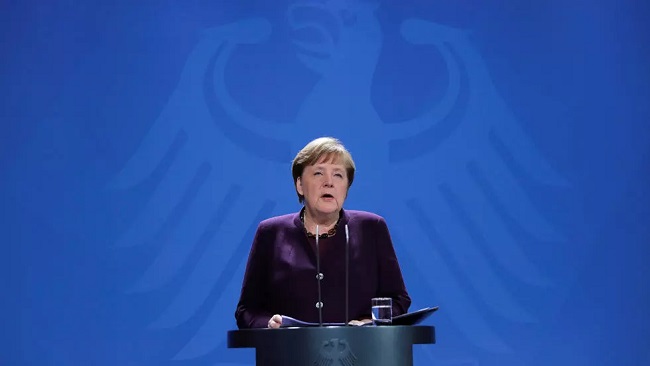


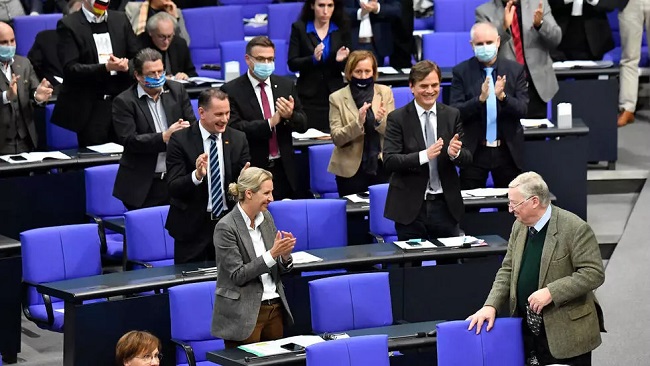
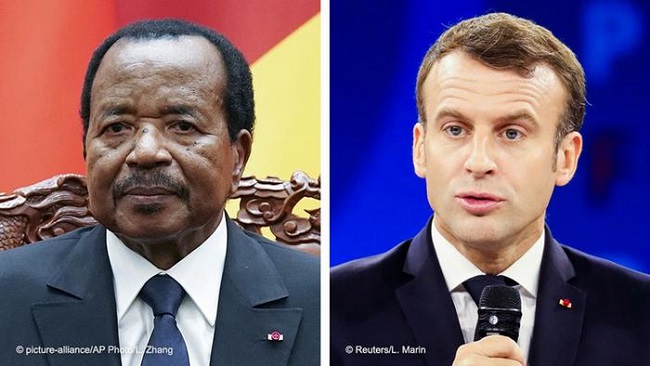



















25, June 2021
EU leaders reject France, Germany’s proposal for Putin summit 0
European Union leaders failed to agree on a proposal by France and Germany to hold a summit soon with Russian President Vladimir Putin after Poland and Baltic countries said it would send the wrong message as East-West ties deteriorate.
After U.S. President Joe Biden met Russian President Vladimir Putin in Geneva on June 16, French President Emmanuel Macron said the first EU summit with Putin since January 2014 would be “a dialogue to defend our interests”. He insisted the EU could not only be reactive in its diplomacy with Russia.
But after late night talks at their meeting in Brussels, the 27 EU leaders failed to reach an agreement, German Chancellor Angela Merkel said early on Friday.
“It was a very comprehensive discussion, and not an easy one,” she told reporters. “There was no agreement today on an immediate leaders’ meeting,” she said.
EU summits with Russia ended after Moscow annexed Ukraine’s Crimea peninsula in March 2014 and the West imposed sanctions.
While Austria’s Chancellor Sebastian Kurz said he supported the Franco-German proposal, many other leaders were opposed.
“It was a common position of many leaders” not to change the stance on Russia, Lithuanian President Gitanas Nauseda said after the meeting broke up. He earlier said the idea was like “trying to engage the bear to keep a pot of honey safe”.
Latvia’s Prime Minister Krisjanis Karins said the EU risked rewarding Russia with a summit even though diplomacy has failed to end the conflict in eastern Ukraine with Russian-backed separatists.
Instead, EU leaders fell back to a familiar position of warning of more sanctions on Moscow if it continued what the EU says is a Russian policy of disinformation, cyber and covert attacks and interference to try to divide the bloc.
Russia denies any wrongdoing
In a summit statement, leaders called on the European Commission and the EU’s top diplomat Josep Borrell “to present options for additional restrictive measures, including economic sanctions” against Russia.
The EU has sanctions on the Russian energy, financial and arms sectors and individual sanctions on Russians accused of human rights abuses and for using banned chemical weapons.
Diplomats say further sanctions could target Russian money laundering or powerful oligarchs suspected of serious corruption abroad, as non-EU member Britain did for the first time in April.
Search for dialogue
Macron had tried in September 2019 to seek less frosty ties with Putin, without success, and Germany’s outgoing Chancellor Angela Merkel met Putin in Moscow in January 2020. Putin held a phone call with European Council President Charles Michel, who chairs EU summits, on June 7 this year.
France and Germany want to be able to work with Russia on combating climate change and to find ways to stabilise relations. Merkel said even without a summit: “Formats will be explored … under which dialogues can be started.”
Many EU countries are concerned that the Kremlin does not take the bloc seriously, after Borrell was publicly humiliated in February by the Kremlin. Russia expelled EU diplomats during Borrell’s visit to Moscow without warning.
Lithuania’s Nauseda said: “We should be extremely cautious, this is not like the relationship of Russia with the United States”.
While France is a nuclear power, the EU relies on NATO for its territorial defence and takes decisions among 27 states, making it easier for the Kremlin to exploit divisions.
The Kremlin earlier welcomed the idea of a summit, saying both Brussels and Moscow needed dialogue, although Russian Foreign Minister Sergei Lavrov said he wanted more details.
On opposing sides in standoffs in Ukraine and Belarus, and at odds over human rights, the EU and Russia accuse each other of threatening security and stability from the Baltics to the Black Sea.
The EU on Thursday imposed economic sanctions on Belarus, an ally of Russia that the Kremlin sees as a buffer state between Russia and NATO.
Reporting from Brussels shortly before the start of the summit, FRANCE 24’s Dave Keating said there was a “very mixed reaction” within the bloc to the proposal. “A lot of EU leaders are very angry about this proposal,” he explained. “Several feel that it’s pretentious for the leaders of France and Germany to think that they could meet with Putin and speak for all of the EU … a lot of countries think that this meeting shouldn’t be happening at all, particularly the Baltic states – Estonia, Latvia, Lithuania – and Poland.”
In their remarks to reporters ahead of the summit, a number of European leaders expressed misgivings over the initiative, said Keating. “Estonia’s prime minister [Kaja Kallas] coming into the summit building said she wants to hear from France and Germany what exactly has changed in terms of Russia’s behaviour to warrant this suggested opening of dialogue. We also had Dutch Prime Minister Mark Rutte saying that if Merkel and Macron want to meet with Putin, he won’t object, but he himself would never meet with Putin. Asked why, he said, ‘one word: MH17’ – that’s the airliner carrying Dutch passengers that was downed over eastern Ukraine by Russian separatists in 2014,” Keating explained.
Standing firm and engaging
The Merkel-Macron plan insists the EU has to stand firm and united on Moscow, but should look to engage with the Kremlin on issues of mutual interest such as climate change, health, the Iran nuclear deal and conflicts in Syria and Libya.
Source: France 24